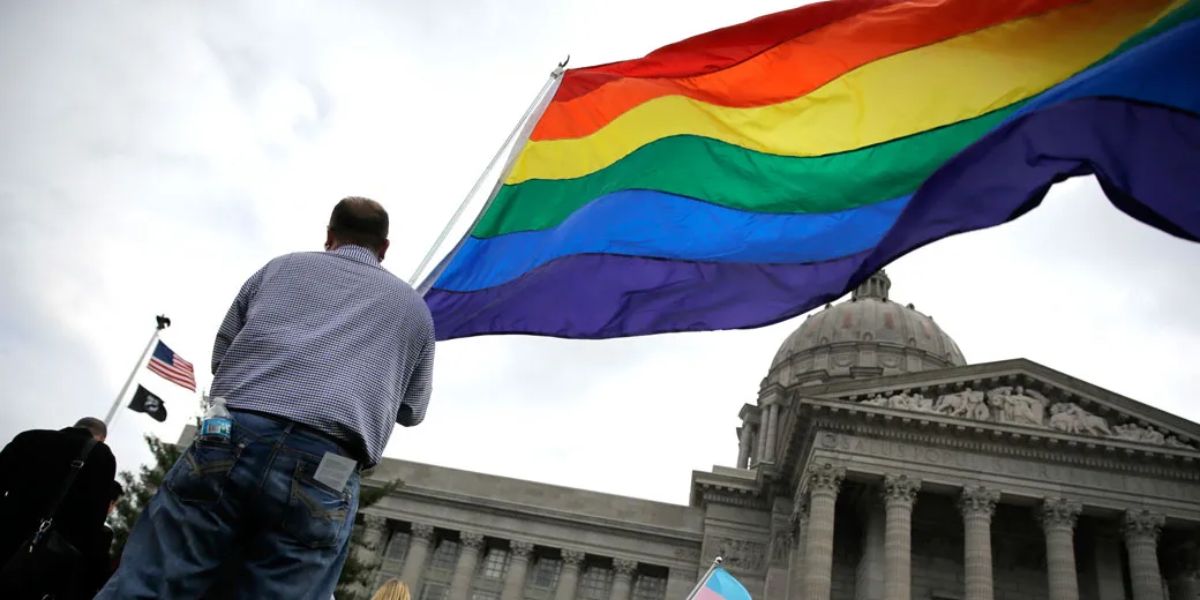LGBTQ+ Foster Youths Face Diverse Futures Amid Tennessee and Colorado’s Contrasting Laws
LGBTQ+ youth in foster care in Tennessee and Colorado may have radically different experiences depending on where they are put under dueling legislation introduced by state legislators this week.
In Tennessee, the Republican supermajority approved legislation that would allow LGBTQ+ children to be placed with families who embrace anti-LGBTQ+ views. Meanwhile, Colorado’s Democratic majority enacted legislation to protect children in such settings.
With a Republican in Tennessee’s governor’s home and a Democrat in Colorado’s, both bills are poised to become law in the next days or weeks. South Carolina and West Virginia have laws similar to Tennessee’s, as red and blue states consider bills aimed at preserving LGBTQ+ rights.
- Auto Insurance Shopping Rises in Response to Soaring Insurance Rates: Report
- Avoid These 7 Missteps When Refinancing to a Lower Mortgage Rate
- Rising Home Prices Amid Slight Mortgage Rate Dip: Analysis
- Fresno County’s Groundbreaking Initiative: $500 Monthly Payments in New Guaranteed Income Program, Here is Who is Eligible
- Unlocking Financial Freedom: 5 Reasons to Opt for Personal Loans in Credit Card Debt Repayment
Colorado’s plan includes a bill of rights for foster children, including the contentious requirement that foster parents use an LGBTQ+ child’s preferred name, pronouns, and gender expression, such as the clothing they wear. The regulations are currently set in statute as recommendations, but the bill would require responsibility and actively remind foster youngsters of their rights.
Sen. Rachel Zenzinger, one of the bill’s supporters, delivered a passionate defense during the final debate on Thursday, citing her foster siblings and a transgender child.
- Will Everyone Get a $12,000 Stimulus Check in 2024? Find Out Eligibility
- $6400 Stimulus Checks in 2024: What You Need to Know About Eligibility and Payment Dates
- IRS 4th Stimulus Check 2024: Comprehensive Guide to Eligibility and Payment Dates
- 3 Smart Moves to Make Once Your Savings Reach $50,000, Here Are Crucial Actions to Take
- 3 Effective Ways to Pay Off Student Loans on a $50K Salary or Less, Know Here!
“If something happened to me and my child ended up in foster care, I would not want the caregivers to start calling her Sophia. “Because my child’s name is Soren,” Zenzinger remarked, looking out across the floor. “Just because their parent can no longer take care of them, and they are temporarily separated from their parents, does not mean that they have to give up their very essence.”
Republican opposition has mostly focused on restricting foster parents’ capacity to parent. The criticism has been linked to both open and subtle attacks on the wide LGBTQ+ safeguards.
“This bill restricts those parents’ ability to provide them with the guidance that they may require the most, for the sake of something that may not be in the child’s best interests,” Republican Sen. Mark Baisley said on the Senate floor.
Tennessee’s measure would allow state officials to consider the “religious or moral beliefs” of prospective adoptive or foster parents when assessing proper placement.
It does not compel the state’s Department of Children’s Services to put LGBTQ+ children with anti-LGBTQ+ households. According to department spokesperson Ashley Zarach, authorities ask prospective parents questions about their desire to parent a kid who identifies as LGBTQI+ and seek the “most appropriate placement to meet the unique needs of each child in our care.”
Tennessee Democrats and LGBTQ+ supporters fear that, despite the state agency’s authority to consider religious and moral values, children in state custody may still be placed with caregivers who do not support or accept their gender or sexual identities.
They point out that LGBTQ+ children are overrepresented in the foster care system nationwide. According to the federal government, studies suggest that 32% of foster youth aged 12 to 21 identify as having a “diverse sexual orientation or gender identity.”
If passed, Tennessee’s “Tennessee Foster and Adoptive Parent Protection Act” will almost certainly face judicial challenges. Advocates repeatedly cited recently proposed federal guidelines requiring states to ensure that children in foster care are placed in families that are “free of hostility, mistreatment, or abuse based on the child’s LGBTQI+ status.”
“The name of this bill implies that parents need protection from children who have different gender identities,” said Rep. Aftyn Behn, a Nashville Democrat. “This piece of legislation is discriminatory.”
Tennessee Republicans have mostly rejected concerns about the legislation. Supporters say that the measure is necessary to prevent potential families from being permanently barred from fostering or adopting children based on their beliefs.
“Tennessee should welcome a diverse range of qualified adoptive and foster parents, including those of faith… and this bill enforces that,” Republican Rep. Mary Littleton said when supporting the bill on the House floor earlier this week.











